
Petroleum Engineer - Petroleum Engineering Insights
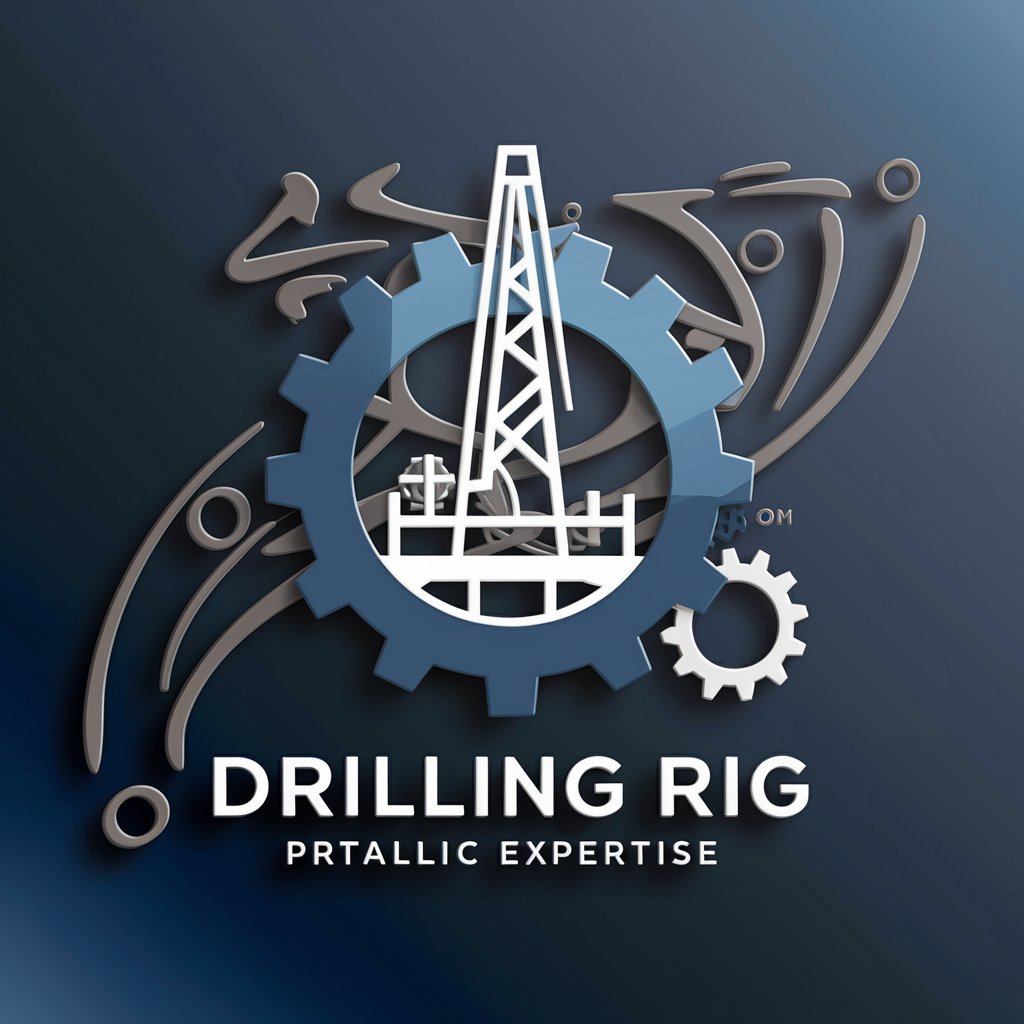
Welcome! Ready to explore petroleum engineering?
AI-driven Petroleum Engineering Solutions
Create a detailed diagram explaining the thermodynamic processes in an oil refinery.
Describe the fluid mechanics involved in offshore drilling operations.
Explain the mathematical models used in predicting reservoir performance.
Discuss the key components and functioning of a hydraulic fracturing system.
Get Embed Code
Introduction to Petroleum Engineering
Petroleum engineering is a specialized engineering discipline concerned with the activities related to the production of hydrocarbons, which can be either crude oil or natural gas. This field combines principles from geology, chemistry, physics, and mathematics to extract and refine oil and gas from under the Earth's surface efficiently and safely. Petroleum engineers design and develop methods for extracting oil and gas from deposits below the Earth’s surface and find new ways to extract oil and gas from older wells. A typical example of their work includes assessing potential oil and gas reservoirs, designing surface collection and treatment facilities, and using sophisticated computer models to simulate reservoir behavior to maximize production. Powered by ChatGPT-4o。

Main Functions of Petroleum Engineers
Reservoir Engineering
Example
Estimating recoverable oil or gas volume from a prospective reservoir by using various mathematical models to simulate the physical behavior of hydrocarbons in porous rock.
Scenario
In a newly discovered oil field, reservoir engineers analyze subsurface geological data and well testing data to estimate how much oil can be recovered. They also decide on the optimal placement of wells and the best recovery techniques to maximize oil extraction.
Drilling Engineering
Example
Designing and planning the operation for drilling wells to extract oil and gas efficiently and safely, including the selection of drill bits and drilling fluids.
Scenario
When preparing to drill a new well in an offshore oil field, drilling engineers design the drilling plan, select the appropriate drilling equipment, and implement drilling strategies to minimize environmental impact and ensure the safety of the drilling crew.
Production Engineering
Example
Overseeing the daily management of oil and gas production operations and designing surface equipment for processing the produced fluids.
Scenario
Production engineers work on optimizing the performance of individual wells and the overall field to increase output. They may introduce new techniques such as hydraulic fracturing to stimulate wells and increase production.
Ideal Users of Petroleum Engineering Services
Oil and Gas Companies
These entities are the primary users of petroleum engineering services, as they are directly involved in the exploration, extraction, and production of oil and gas resources. They rely on petroleum engineers to maximize hydrocarbon recovery at minimum cost while ensuring safety and environmental protection.
Government and Regulatory Bodies
Government agencies involved in the regulation of natural resources utilize petroleum engineers to assess the technical aspects of oil and gas projects, ensuring compliance with environmental and safety standards. They also rely on their expertise for advising on policy and resource management.
Environmental and Safety Organizations
These groups benefit from the expertise of petroleum engineers in developing safer and more environmentally friendly extraction and production techniques. They work together to minimize the impact of oil and gas operations on the environment and ensure the safety of workers and communities.

How to Use Petroleum Engineer
Start with a Free Trial
Initiate your experience by visiting a platform like yeschat.ai, where you can explore the capabilities of Petroleum Engineer without the need for registration or a ChatGPT Plus subscription.
Identify Your Needs
Determine your specific requirements or the problem you're facing that relates to petroleum engineering, such as reservoir simulation, drilling optimization, or production forecasting.
Utilize Specific Features
Engage with the tool's features designed for your needs, whether it's data analysis, modeling, simulation, or technical advice, ensuring to input all necessary data accurately.
Analyze the Results
Carefully review the outputs provided by the tool, including any recommendations, graphs, or simulations, to ensure they align with your expectations and requirements.
Apply Insights Practically
Implement the insights or solutions provided by Petroleum Engineer into your work, using them to inform decision-making processes, enhance efficiency, or solve specific challenges.
Try other advanced and practical GPTs
Feng Shui Visionary
Harmonize Your Space with AI

PetroChem Expert
Streamlining Petroleum Chemistry Research

Geophysicist Lau
Powering Petroleum Exploration with AI

China University of Petroleum, Beijing
Empowering innovation with AI-driven insights

The Everyday I Ching 易經
AI-Powered Ancient Wisdom

Inspiring Psychic
Unlock your potential with AI-powered insights

Petroleum Analyst
Unlocking Energy Insights with AI
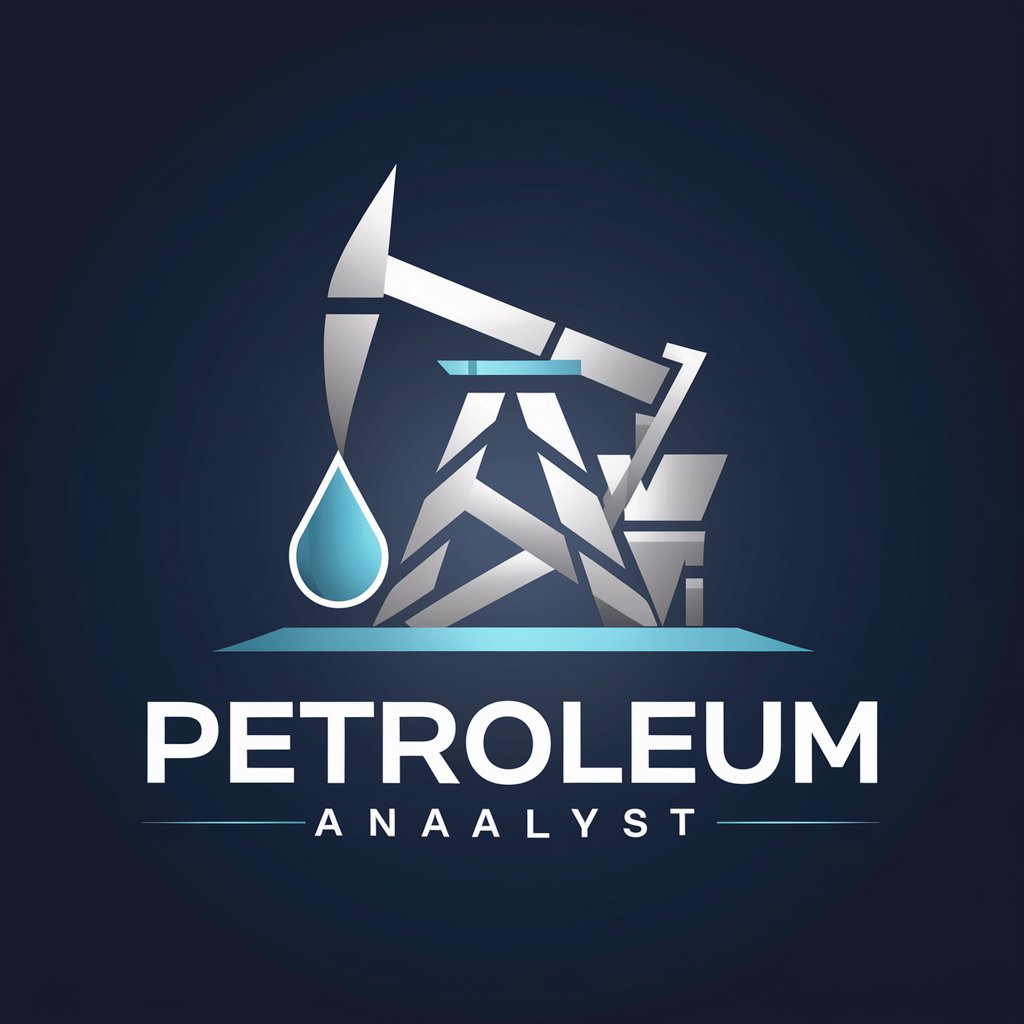
Petroleum Engineering Tutor
AI-powered guidance in petroleum engineering
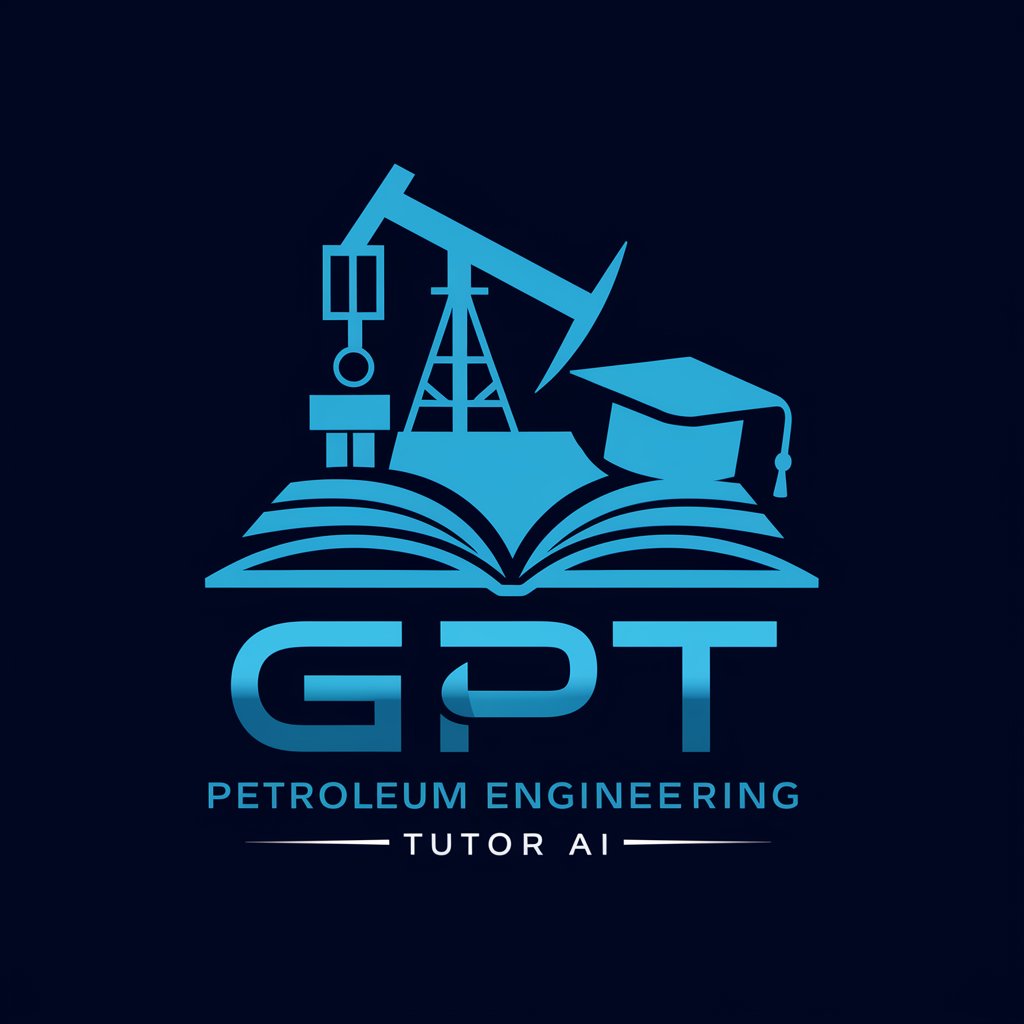
Catherine
Expert AI for Professional Insights

Carbajal AI
Empowering service stations with AI

Petroleum Landman
Empowering energy sector decisions with AI
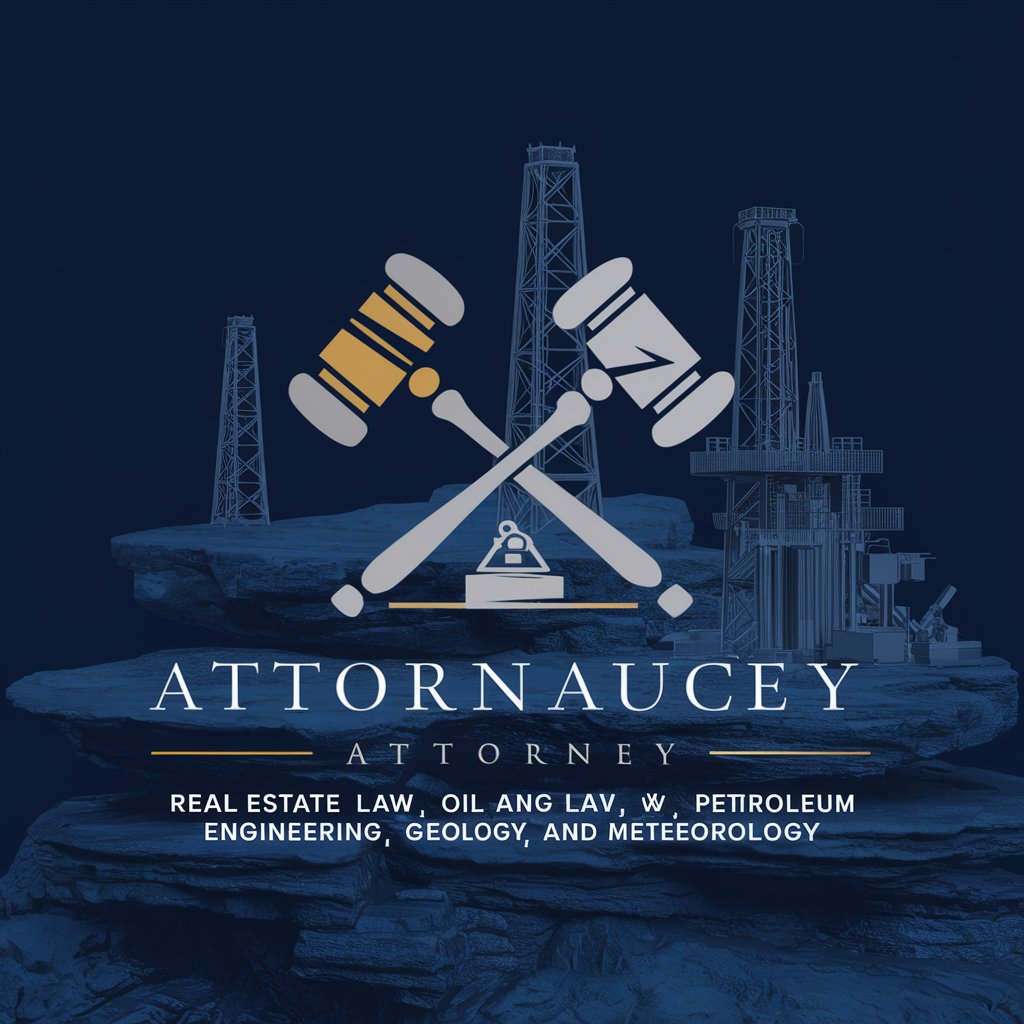
Petroleum Advisor
AI-driven petroleum engineering expertise at your fingertips.
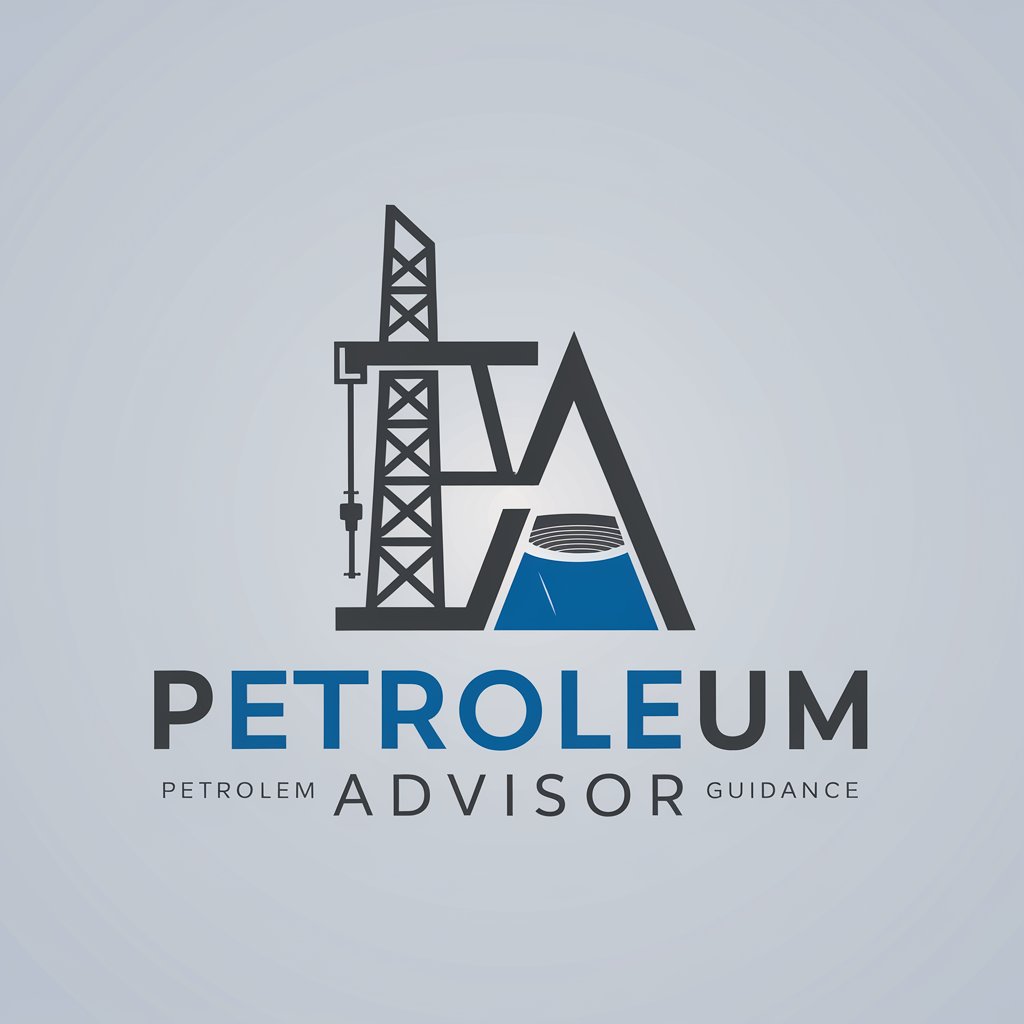
Petroleum Engineer Q&A
What is Petroleum Engineer primarily used for?
Petroleum Engineer is used for optimizing oil and gas extraction processes, designing and developing methods for extracting oil and gas from deposits below the Earth's surface, and maximizing hydrocarbon recovery at minimum cost while ensuring safety and efficiency.
Can Petroleum Engineer help in reservoir simulation?
Yes, it's equipped with advanced simulation tools to model reservoir behavior under various scenarios, helping in understanding reservoir dynamics, predicting future performance, and making informed decisions about field development.
Is Petroleum Engineer suitable for academic research?
Absolutely, it serves as a powerful tool for academic research in petroleum engineering, offering capabilities for complex simulations, data analysis, and the exploration of theoretical concepts in a practical context.
How can Petroleum Engineer assist in drilling optimization?
It provides insights on drilling strategies, recommends optimal drilling parameters, and offers solutions to mitigate risks, thereby improving safety and reducing costs associated with drilling operations.
What kind of data input is required for Petroleum Engineer to be effective?
It requires detailed geological, operational, and production data, including reservoir properties, well logs, production history, and project specifications, to generate accurate analyses and recommendations.